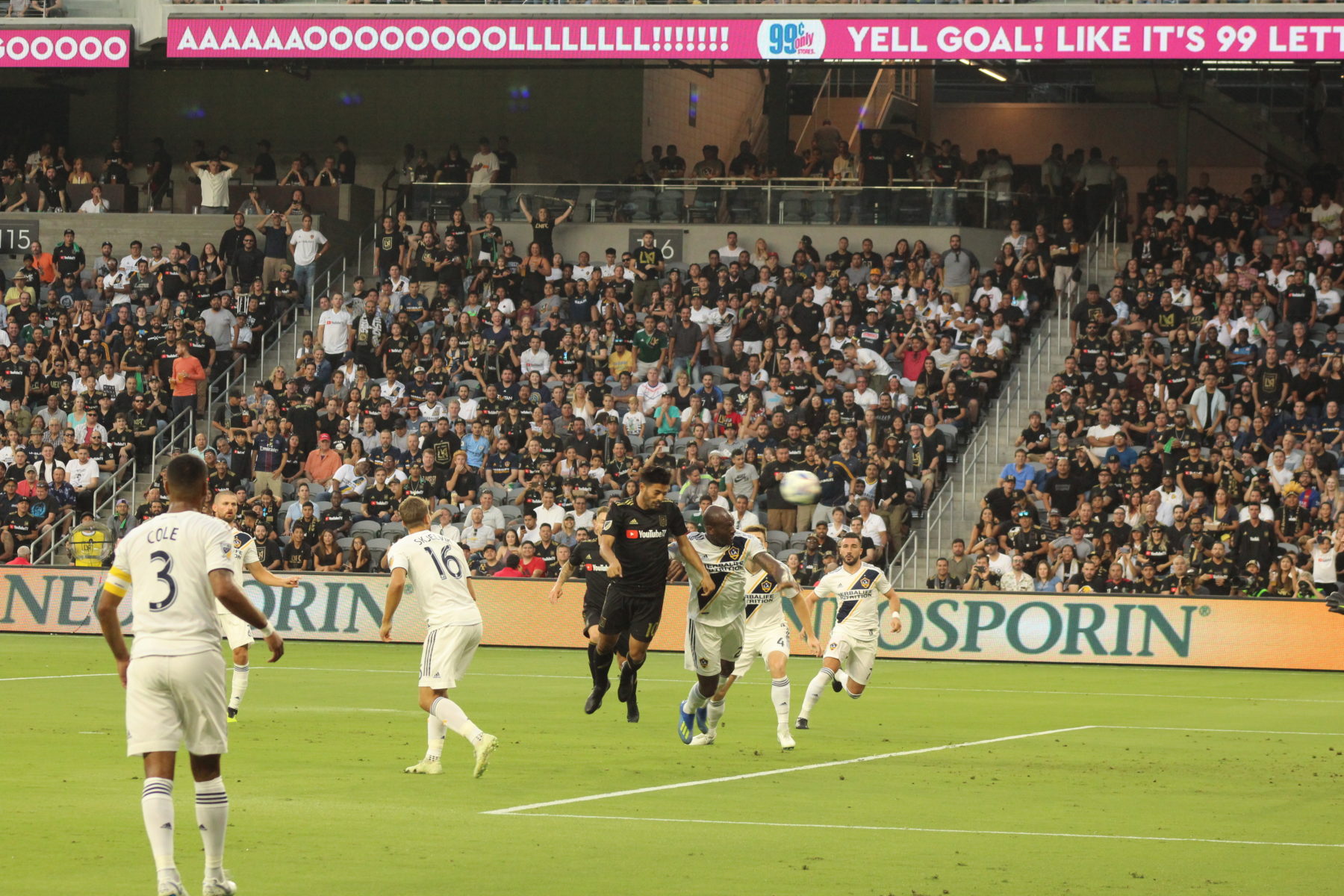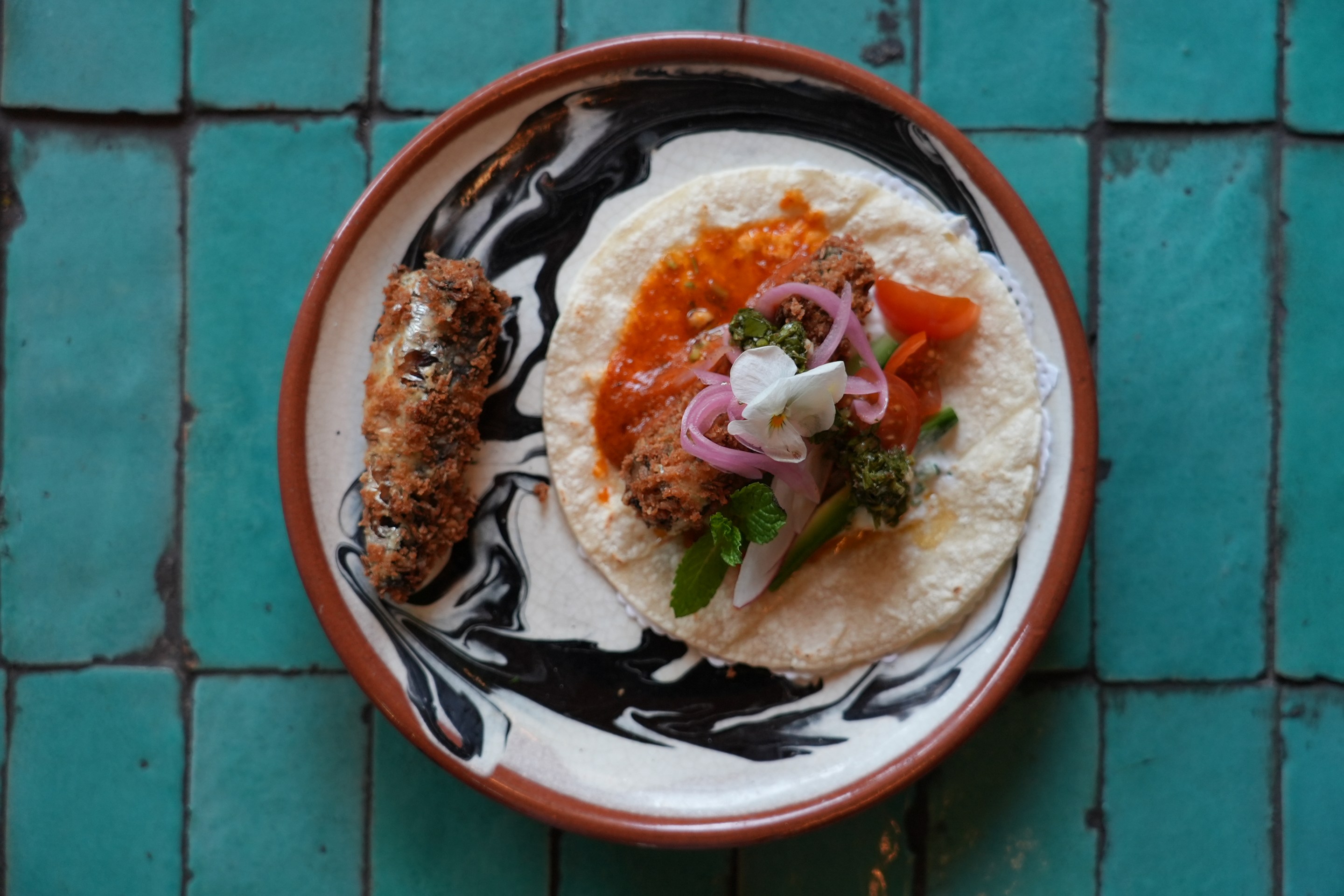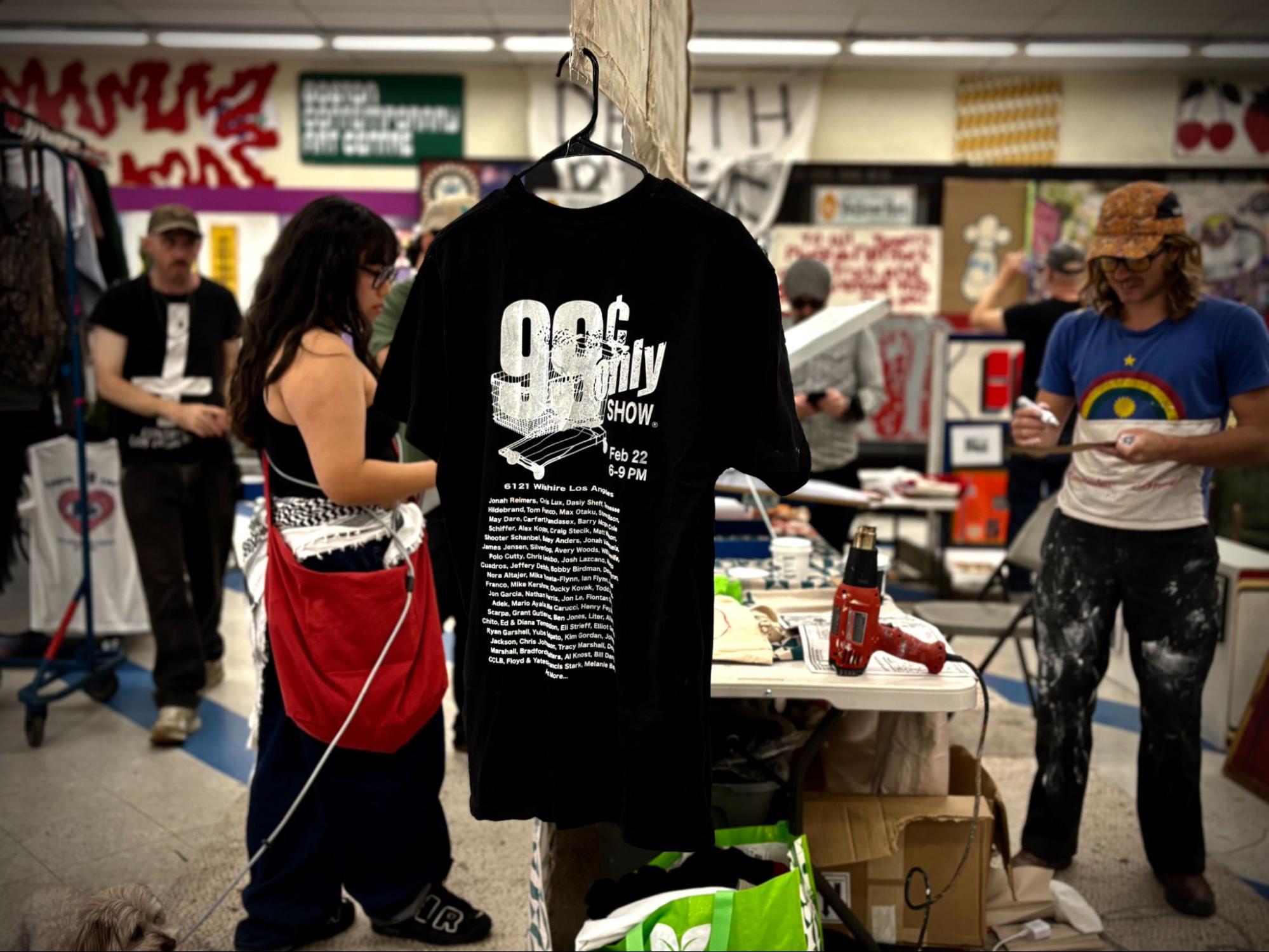[dropcap size=big]T[/dropcap]he game was a test of wills in the nascent world of L.A. soccer’s two big houses, and a reflection of a changing city — the legacy club LA Galaxy against the upstart kids on the block, the Los Angeles Football Club. Their matches are quickly becoming a quest for bragging rights among the growing Major League Soccer fanbase in Los Angeles.
And on Thursday night, the LAFC settled for a 2-2 tie against Galaxy, in a four-goal thriller. Expectation for the next match-up was palpable immediately.
The bubbling rivalry, which fans have dubbed "El Tráfico," pits the newest Major League Soccer franchise against one of its most storied clubs, and also highlights a geographical divide.
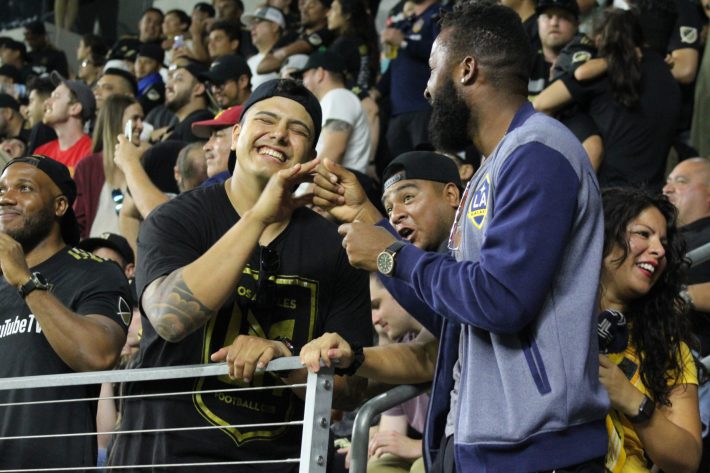
The Galaxy, founded in 1996, play in Carson, while the LAFC — in their inaugural season — play in Exposition Park, with a view of the downtown skyscrapers. Thursday’s game gave LAFC a chance for revenge following a 4-3 loss at the Galaxy’s home stadium four months ago. Although it didn't happen for LAFC this time, the club's fans are not ceding.
Gabriel Velasco, a member of District 9 Ultras, an LAFC supporter group (or diehard fan club, common in professional soccer), said he wasn’t even a fan of MLS until LAFC announced in 2015 the construction of the Banc of California Stadium near his home. Velasco has attended every home game since the opener in April.
“We always say Carson [Galaxy] because they’re located in Carson, not in L.A.,” he said.
Galaxy fans respond by arguing that their decades of dedication laid the groundwork for any of LAFC’s success. Ivan Villanueva, a Galaxy fan “since day one,” told L.A. Taco that LAFC’s downtown-near stadium is really a reflection of the hard work put in by LA Galaxy and their supporters.
“You can say that LA Galaxy fans are the real L.A. fans because they’ve been through it all,” Villanueva said. “They’ve seen it all, as opposed to all these new LAFC fans who are just coming onboard.”
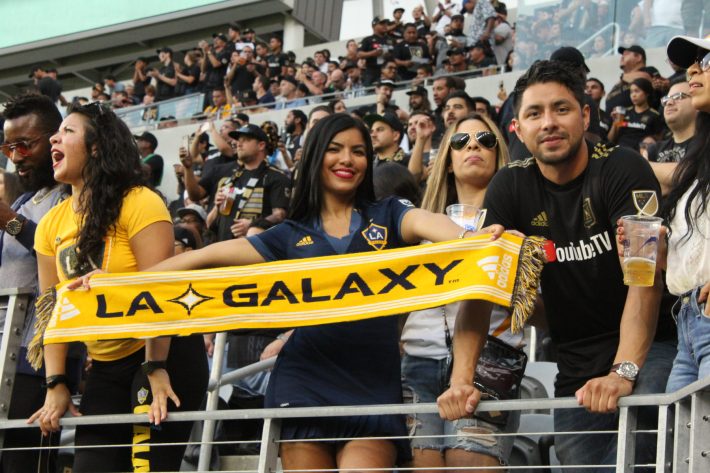
[dropcap size=big]T[/dropcap]he Galaxy’s home is the StubHub Center on the grounds of California State University Dominguez Hills, 15 miles south of Downtown. The location gives LAFC fans an upper hand in claiming L.A., their camp argues.
The new club is in the heart of the city, Velasco pointed out. Banc of California Stadium is surrounded by major streets, the Metro, and the 110 Harbor Freeway, veins and arteries that are the lifeblood of L.A. Meanwhile, the Galaxy’s suburban location just outside L.A. city limits can feel like a literal galaxy away, thanks to the decades of suburban sprawl and gentrification.
But the Galaxy have an advantage when it comes to legacy, which has brought five MLS championships and international superstars, like Jorge Campos, David Beckham, Giovani Dos Santos, and Zlatan Ibrahimovic, all to a city that loves winning and loves its stars. The Galaxy helped usher professional level soccer back, not just the city, but to the entire country.
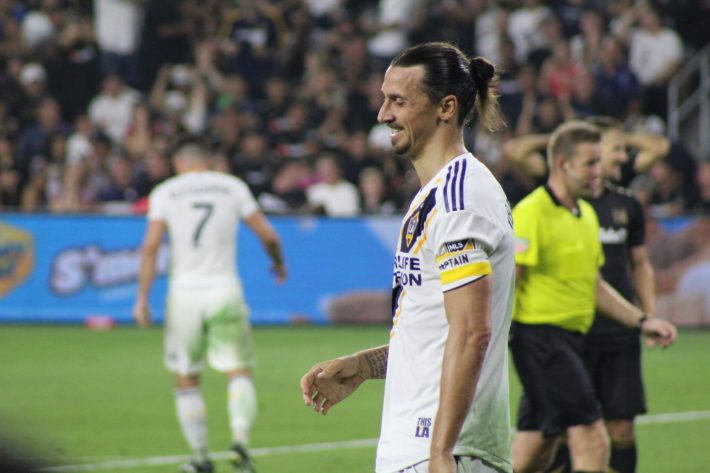
Professional-level soccer in the U.S. had ceased when the original North American Soccer League folded in 1985. Nearly a decade later, FIFA awarded the US the rights to host the 1994 World Cup with the stipulation that the United States Soccer Federation create a new professional league. This led to the creation of MLS, with the Galaxy as one of the 10 founding franchises.
They originally set up shop at the Rose Bowl in Pasadena when the league began official play in 1996. In 2003, the team made a permanent move to the StubHub (previously the Home Depot Center), which it shared with its previous rival, Chivas USA, from 2004 to 2014.
“In defense of the Galaxy, they couldn’t have even dreamt of a stadium close to Downtown,” Villanueva explained. “That was even before Staples [Center]! That was right before L.A. started to change. Carson was probably the only thing they could literally find.”
George, who asked to have his last name withheld, is another Galaxy diehard who has supported the team for over 20 years. He agrees with Villanueva but also believes that the team grew too comfortable in its central location between DTLA and the South Bay, and thus failed to look at growing their brand further after the dissolution of Chivas USA in 2014.
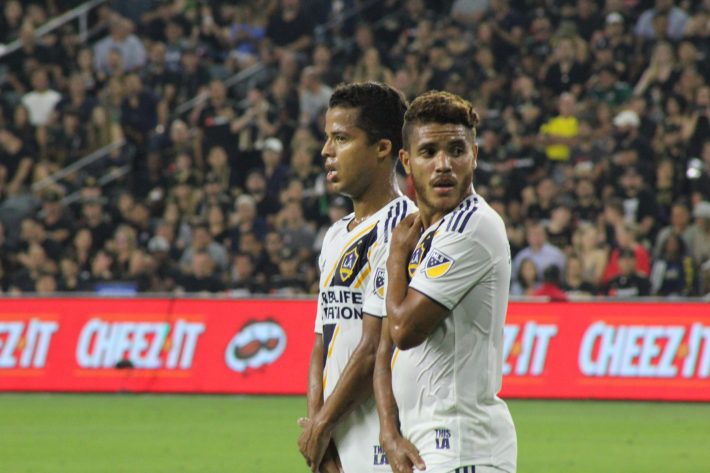
“The Galaxy could’ve easily said, ‘We want to put our stamp as the team for L.A.’ and they could’ve had the same location where LAFC stadium is at,” he told L.A. Taco. “They felt that, ‘OK. Now that this other team is gone, we have the whole exclusive rights to this area.’”
That comfort and complacency cost the Galaxy in terms of growing its fanbase beyond its suburban confines, according to Josh Lee, a member of Koreatown-based LAFC supporters group Tigers Supporters Group.
“Most of us grew up as either La Liga fans or Premier League fans so, even as Americans, we saw MLS as not as interesting,” Lee told L.A. Taco. “I think that a big part of that was because teams like the Galaxy, even though they won a lot, they didn’t really invest in the communities that we lived in and they didn’t really care about Los Angeles proper where we’ve always lived.”
The LAFC counts on a contingent of former Chivas USA fans in its ranks, including some supporter groups. MLS dissolved that team in October 2014 after purchasing it back from its previous owners, who had mismanaged the team every step of the way, earlier that year. Three days later, MLS announced the formation of an entirely new L.A. franchise with new ownership that became
LAFC. Galaxy fans use that history as fodder for trash talk, dubbing LAFC as "Chivas 2.0."
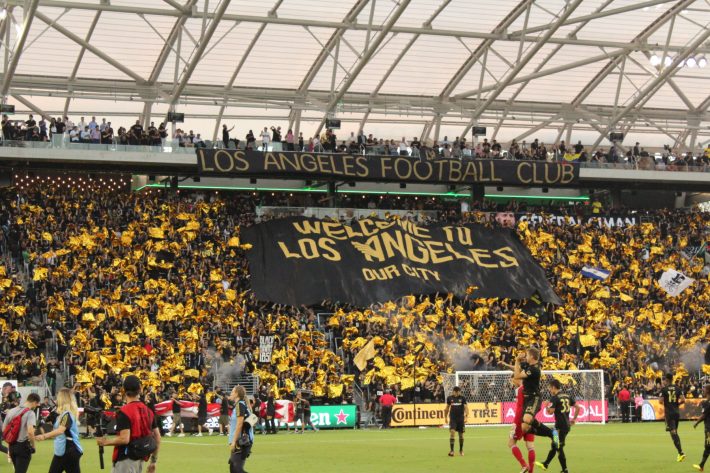
[dropcap size=big]T[/dropcap]his tug of war over the identity of the real Los Angeles is exactly what gives both teams the hallmark of being from L.A., according to Christopher Hawthorne, Chief Design Officer for the city of Los Angeles, who spoke to L.A. Taco about this subject in an interview.
“The real L.A. is a place where the boundaries between city and county, center and edge, urban and suburban, dense and low-rise, surface and interior, and even public and private, tend to be blurrier or tougher to parse than they are elsewhere,” Hawthorne told L.A. Taco.
“Which I guess is a way of saying that what's quintessentially L.A. about our soccer teams is the way their rivalry is framed by these larger questions or anxieties about authenticity, and what does and doesn’t qualify in the American context as a ‘real’ city.”
The teams will meet again in Carson on Aug. 24th.
RELATED:
